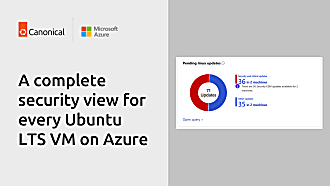Canonical
on 8 November 2013
Recently some concerns were expressed by fixubuntu.com, a website focusing on Ubuntu privacy, about a routine trademark enforcement email that Canonical sent. We want to provide some context around this issue.
In Ubuntu we cherish an open and diverse discourse, and we welcome differing and challenging views and perspectives; it is the cornerstone of our community, as exemplified by our open Ubuntu Developer Summit, mailing lists, IRC channels and more. Our Code of Conduct and Trademark policy simply provide guardrails for those conversations to flourish.
Canonical owns the family of Ubuntu trademarks and we have a responsibility to protect those trademarks. In trademark law a mark owner is expected to protect the authenticity of a trademark otherwise they risk losing the mark.
Our trademark policy is unusually permissive. We have a global community of Ubuntu contributors, LoCo teams, translators, developers, advocates, and others who want to use these marks to within the spirit and governance of the project. Therefore, our policy has been crafted in such a way that we can protect the marks and what they stand for, but also ensure our community has the freedom to use them.
In the case of fixubuntu.com, we were concerned that the use of the trademark implied a connection with and endorsement from the Ubuntu project which didn’t exist. The site owner has already agreed to remove the Ubuntu logo and clarified that there is no connection; from our perspective the situation has been resolved, and we have no issue with the site or the criticism it includes. In fact, far from an trying to silence critics, our trademark policy actually calls out parody and criticism and other uses as being allowed when the marks are used appropriately. (Please make the parodies funny – we need a good laugh as much as anyone!)
We aim to communicate our policies and actions clearly and openly, and I welcome feedback on how to do that better.
UPDATE: I should have mentioned that we do listen closely to constructive criticism and user’s requests about the Online Search function. And in response we already added a simple way for you to limit your search to local results only if you wish. If you’re running the latest version of Ubuntu, check Settings -> Security & Privacy -> Search.



